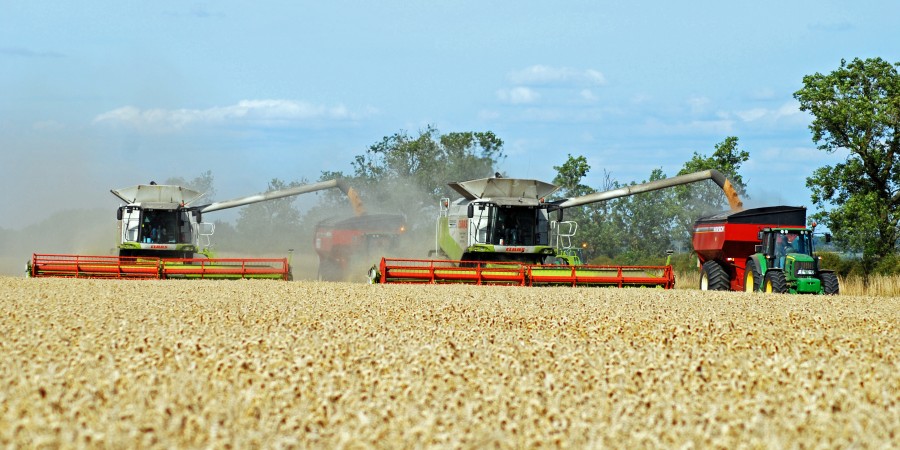“Hands up if blackgrass is a serious problem for your business?”. JVFG member Charles Matts was not surprised that the majority of farmers in the room raised their hands in response. He carried on with a confession: getting better in the battle against blackgrass is driving the decision-making at Brixworth Farming in Northamptonshire. They are working hard to formulate and follow a strategy to beat it.
Counting the cost of blackgrass infection

Charles Matts Managing Director, Brixworth Farming
“We have seen the results through the combine. When passing through a patch of blackgrass the yield plummets from ten tonnes per hectare to four. So we know that unless we control the beast of blackgrass we are not going to get back the yields we want.”
Getting the strategy together
It has taken time and research but Charles now feels he has the making of his strategy. “We have compiled our own strategy for blackgrass.

Ian Matts – architect of Brixworth Farming’s strategy against black grass
The document was put together by my son Ian who is the agronomist for the business. It’s nearly an inch thick and includes everything from the detailed biology of the plant, to all the chemical, cultural and physical weapons to fight it with.” The knowledge gained has only sharpened the sense of foreboding at the weed’s power to destroy productivity. “If blackgrass was an animal disease I’m sure it would have movement restrictions on it.”
Signs of hope
“2015 brought some success in blackgrass control. By getting away with drilling into a shallow seedbed there was virtually no blackgrass in the wheat. However this is seen as merely a temporary reprieve as it is not sustainable to hope for being able to drill into shallow seed beds every year on heavy clays. This makes Charles gloomy for 2016. “Some fields have not been drilled and we’re leaving them until Spring to drill if at all. I have a feeling it may be cheaper to have no crop at all than to chase a poor crop.”
Using every tool in the box
No one technique will beat blackgrass. The clever combination of all the tools is essential including:
- Moving from a four year to five year rotation
- Shallow or no till drilling
- Direct drilling
- Using cover crops
- Moving to Spring campaign of establishment
- Reduced traffic farming
- Being watchful of resistance that makes chemical control a waste of money
Sharing ideas and best practice
Through JVFG there is access to whole range of other experiences in battling blackgrass. From Norfolk, Jamie Symington has a calm approach. “I think with black grass we panic. It is a problem we can deal with and we will beat it but not by throwing chemicals at it but by cleverly using a lot of different methods from cover crops to Spring sowing.”
From Nottinghamshire, Russell Price of Samworth Farms agrees that a mix of technology is essential. “The thing we have to be is flexible. I’ve got this block cropping mentality and I think that, much as it pains me, I have to get away from that and be prepared to think and act differently for the farm and each field if necessary.” Essex-based Edward Hitchcock has seen at Pelham Farming how Spring barley smothers blackgrass. “So do cover crops – and they conserve moisture so we can drill as late as April. The gross margin for spring malting barley does work. And it’s reliable.”
Overcome resistance to recognising chemical resistance
Cultural rather than chemical control is certainly in vogue. A key chapter in the Brixworth battle with blackgrass has been to realise resistance exists. “By sampling I have discovered that I have blackgrass resistant to Atlantis. By just knowing that I saved myself a fortune on spraying a chemical that would have had no impact whatsoever.”, explains Charles.
It may have been a daunting process but amassing an understanding of the armoury at hand helps. At
Brixworth Farming there is now a traffic light system to allocate the seriousness of the situation in each field and the strategy to be followed to deal with it. “I’m quite negative about the next couple of years until we can get some of the control measures from our strategy in place. But we have to beat blackgrass if we are to regain lost yield and stop the terrible damage it is doing to our business.”



